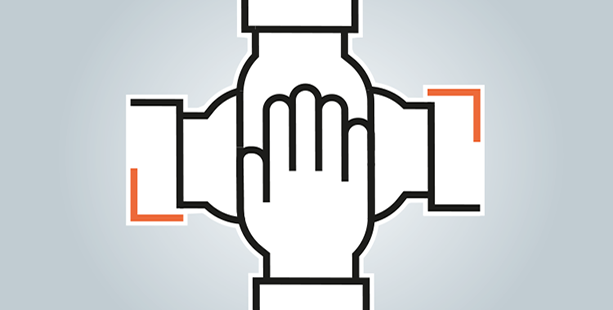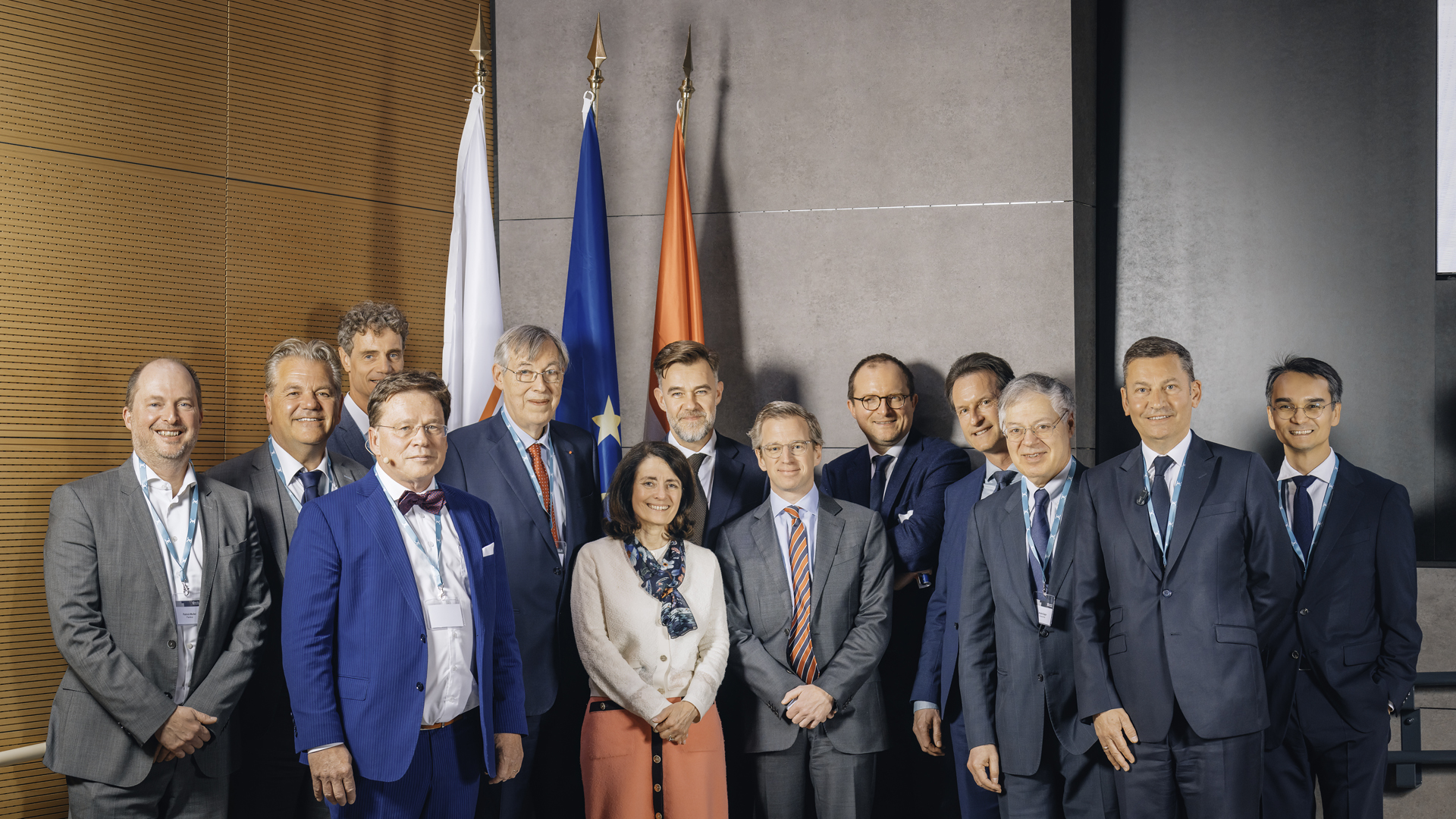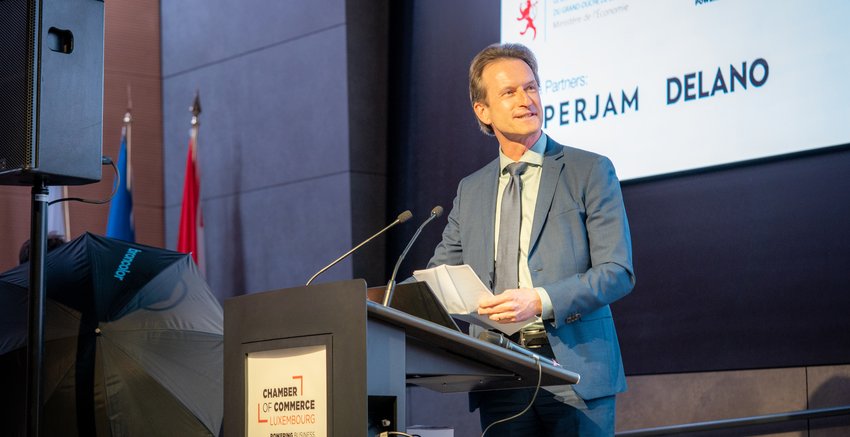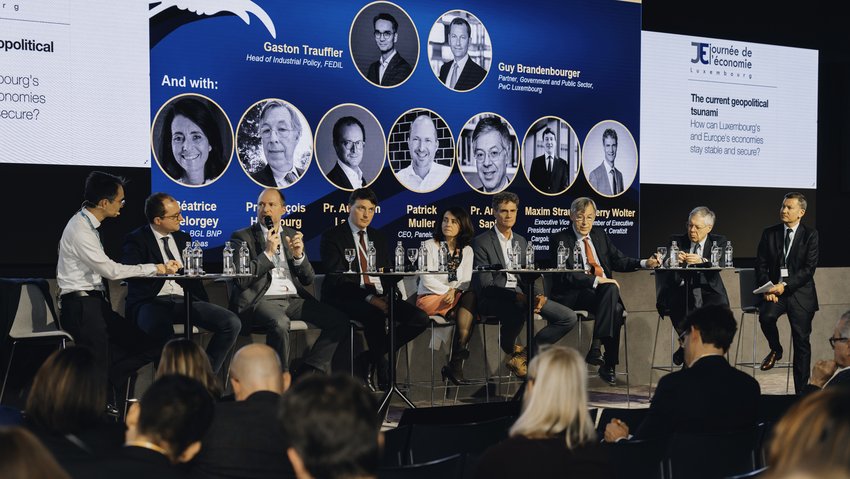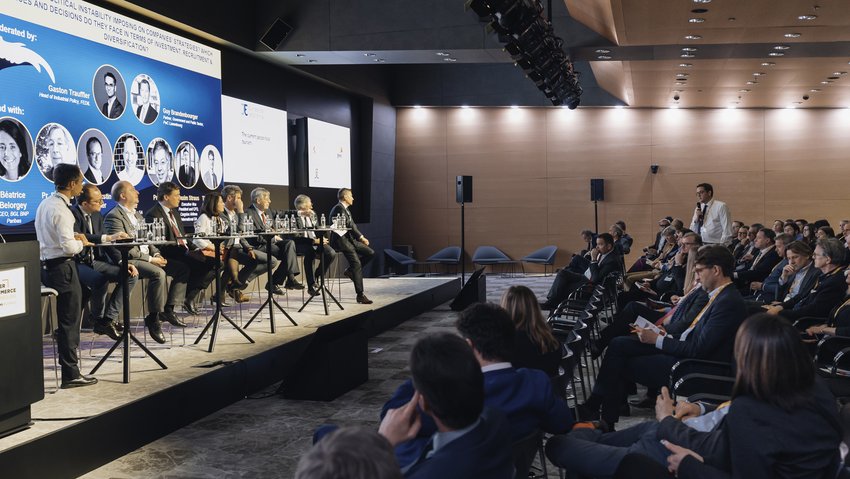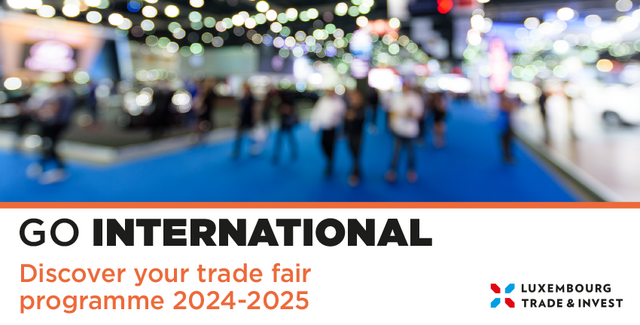
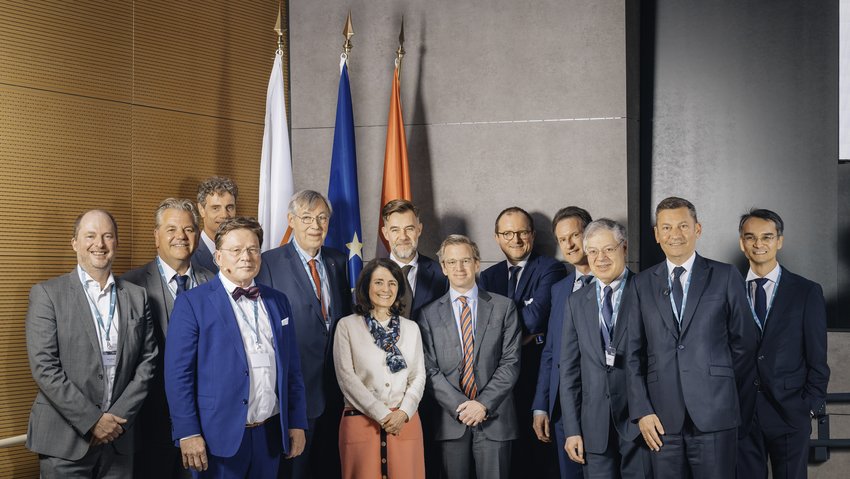
The 16th Journée de l’Economie took place on 17 April 2023 at the Luxembourg Chamber of Commerce. In the presence of Franz Fayot, Minister of the Economy, and with keynote speeches by François Heisbourg, André Sapir and Augustin Landier, an exceptional number of over 200 participants discussed on the theme “The current geopolitical tsunami: How can Luxembourg's and Europe's economies stay stable and secure?”. Two panel discussions enriched the programme and allowed the visitors to raise their questions.
While last year’s edition of the Journée de l’Economie was much more focused on the aftermath of the pandemic and the early beginnings of Russia's invasion of Ukraine, this year’s dominating topics were the geopolitical shifts and threats, notably in Taiwan and Ukraine, the consequences on the global economy and what this new uncertainty means for our values and democracies.
The conference was opened by Carlo Thelen, Director General of the Chambre de Commerce. Mr Thelen underlined the importance of the diversification of the Luxembourg economy and how to use the current momentum to become an active driver for change, notably to promote the green transition and to invest in technology. It is the Chamber of Commerce’s position that commercial trade should be promoted, but it has to be open, fair and support sustainable and responsible values.
Franz Fayot, Minister of Economy, expressed his strong support of the need to revert to values when navigating uncertain times. Mr Fayot emphasised that the “Wandel durch Handel”, i.e. the change through trade principle, which was at the heart of western foreign and trade policies for decades, has backfired. Change is needed, in the way we trade, produce and consume and for this, Luxembourg needs to redesign its economy and prioritise values based trade policies. As a strong supporter of multilateralism, Luxembourg is in full support of the EU’s stability and security efforts to focus more on strategic independence.
Prof. François Heisbourg, Senior Adviser at the International Institute for Strategic Studies (IISS) and special advisor to the president of the Foundation for Strategic Research, introduced the participants to the impact of geopolitics in our current age. Professor Heisbourg laid down the drivers that led to the latest transformative geopolitical changes, such as peak globalisation, the Covid-19 pandemic, the return of ideologies and imperialism, raising a fairly pessimistic memory of the 30 years of the last century, as well as the consequences these shifts have for western democracies. In fact, the 25 years after the fall of the Soviet Union were “a quarter of a century outside of the norm”, where security and stability was a given. This is today not the case anymore, with a multipolar world, countries of the “Global South” gaining momentum and power and a new rising world hegemon, i.e. China.
After having been a keynote speaker at the Journée de l’Economie in 2019, we had the privilege to welcome André Sapir again, economist and professor at the Solvay Brussels School of Economics & Management and senior fellow at Bruegel. Through macroeconomic key indicators, comparing the timing of polycrises to the EU inflation and GDP, and through microeconomics, such as showing the rise of China in in the past decades, from a country with a GDP per capita comparable to Sudan to becoming the first export market and/or the first import source for 56 trading partners, André Sapir confronted the participants with fact-based evidence of what has changed in the world. And while the economy aims in the best of cases to be a positive sum game, geopolitics is always a zero or even negative sum game. It is the question in these times of rising geopolitical importance on how we can solve global problems, such as the climate crisis, together.
Augustin Landier, economist and professor at HEC, closed the keynote sessions with an enlightening speech about the values of our principles and if we are willing to pay the price for our ethical preferences. And while it is worthwhile to mention that values are not shared across the globe, or even within a society in a uniform way, there is also a need for change for economists, who generally judge what is desirable by the final material results. He referred in this regard to the opposition of deontology and consequentialism, and how this applies to the financial industry. Bringing all voices together and not forgetting the voice of the population, without whom the “debate will not be possible”, is a key challenge for policy makers.
Weathering the storms today and tomorrow: which actions, roles & responsibilities for governments & institutions?
Before the break there was a panel of the three keynote speakers, moderated by Serge Allegraza, Director General, STATEC and Observatory for Competitiveness, and François Mousel, Partner, Clients & Market Leader, PwC Luxembourg. The quality of the three guest speakers was very high, and the crowd was intensely interested in their viewpoints, which made for a memorable event amidst the uncertainty of the times people are experiencing right now.
What is geopolitical instability imposing on companies' strategies?
Which choices and decisions do they face in terms of investment, recruitment & diversification?
The final discussion of the day was moderated by Gaston Trauffler, Head of Industrial Policy, FEDIL and Guy Brandenbourger, Partner, Government and Public Sector Leader, PwC Luxembourg. They
were joined by Béatrice Belorgey, CEO, BGL BNP Paribas, Patrick Muller, CEO, Panelux SA, Maxim Straus, Executive Vice President and CFO, Cargolux Airlines International SA and Thierry Wolter, Member of Executive Board, Ceratizit, for a vivid discussion about the challenges the geopolitical instability is imposing on companies, such as supply chain and international trade.
On behalf of all of the organisers, a huge thank you is extended to all the participants and panellists of the conference for their valuable contribution.
Press release by PwC Luxembourg

